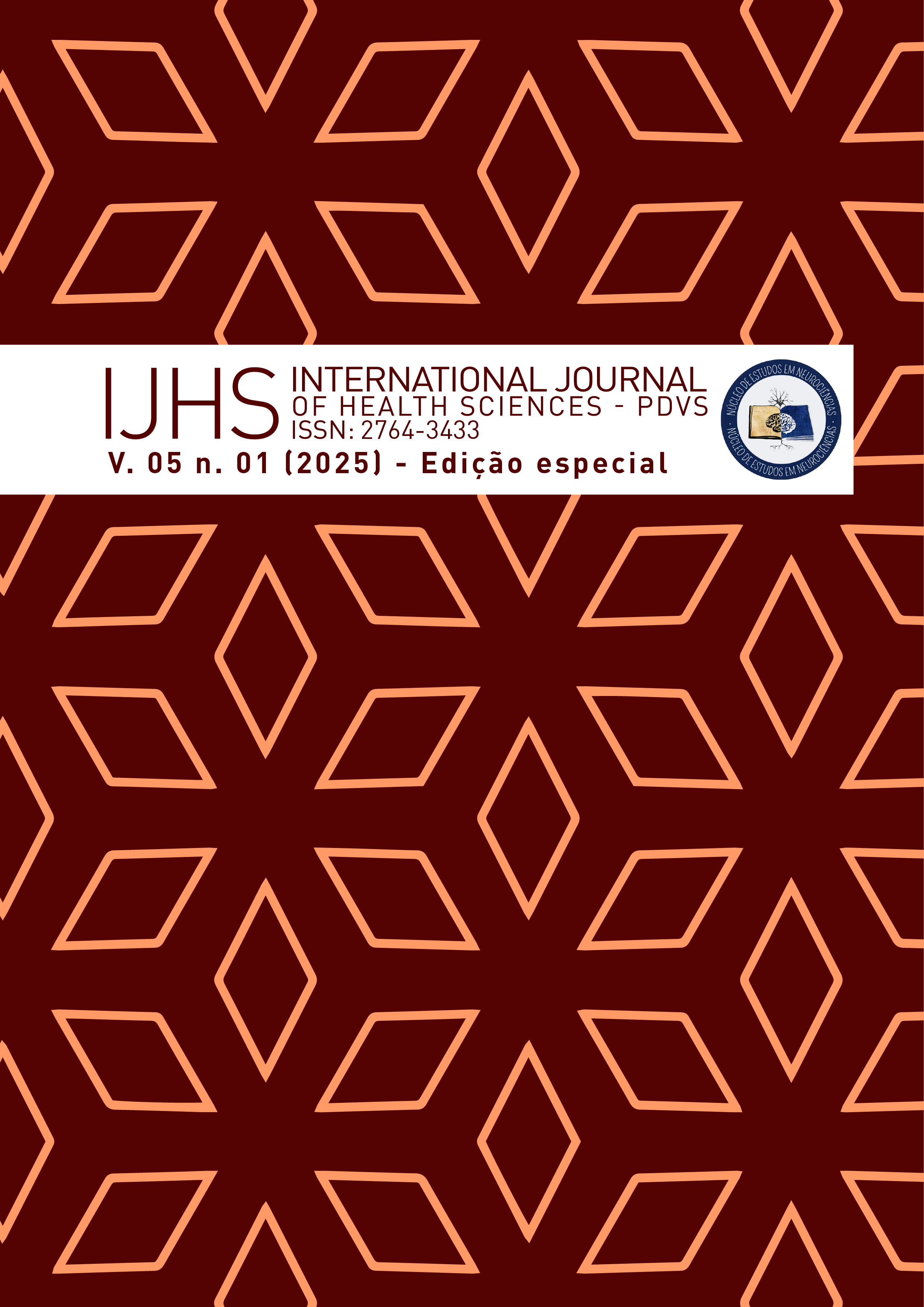IMPACT OF THE COVID-19 PANDEMIC ON ADOLESCENT MENTAL HEALTH - A REVIEW STUDY IN BRAZIL
DOI:
https://doi.org/10.31692/2764-3433.v5i1.302Keywords:
Adolescent, Mental health, Pandemics, COVID-19Abstract
Introduction: The COVID-19 pandemic, which began in December 2019, quickly became a global crisis, causing significant changes to the daily lives of the population. In Brazil, with the first case reported in February 2020, measures such as social isolation, school closures, and lockdowns profoundly impacted the lives of adolescents. This group, vulnerable to developing mental health disorders, was directly affected. Social distancing, mourning the loss of family members, and economic uncertainties intensified cases of depression, anxiety, and stress. Furthermore, young people from socioeconomically disadvantaged backgrounds faced increased inequalities, worsening their psychological suffering. Objective: To identify the impacts of the COVID-19 pandemic on adolescent mental health in the literature. Methodology: This study is an integrative literature review conducted between March and October 2024. The methodology was structured in six steps: formulation of the guiding question and objective; systematic search with predefined criteria; data collection; study analysis; discussion of results; and presentation of the review. The selection of articles followed the PRISMA model and used the PICo method, with the guiding question: “What does the literature say about the impact of the COVID-19 pandemic on adolescent mental health in Brazil?”. The search was conducted in databases such as Medline, Lilacs, PubMed, and SciELO, using descriptors such as adolescent, mental health, and COVID-19. Studies published in the last 4 years, available in Portuguese, specifically addressing the pandemic's impact on adolescent mental health were included, excluding duplicates, reviews, and dissertations. Results and Discussion: The initial search located 100 articles (BVS: 85; PubMed: 2; SciELO: 13). After applying the inclusion and exclusion criteria, 88 studies remained, of which 18 were selected for full reading. Twelve were excluded for not answering the research question, resulting in 6 studies in the final sample. The results highlighted a higher prevalence of depression, anxiety, and stress among girls, as well as loneliness and relationship difficulties. Studies conducted in Rio Grande do Sul and Minas Gerais reported a high incidence of severe symptoms, such as suicidal behavior and anxiety, exacerbated by isolation and the suspension of school activities. Conclusion: The COVID-19 pandemic revealed profound impacts on adolescent mental health, highlighting vulnerabilities related to gender, socioeconomic context, and social isolation. Strategies that promote emotional support, strengthen family bonds, and provide access to mental health services are essential to mitigate prolonged effects and foster resilience in this group.

Downloads
Published
Issue
Section
License
Copyright (c) 2025 International Journal of Health Sciences

This work is licensed under a Creative Commons Attribution 4.0 International License.





